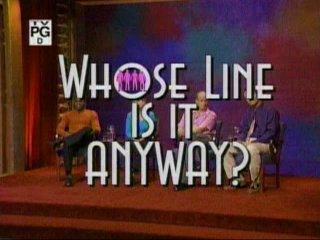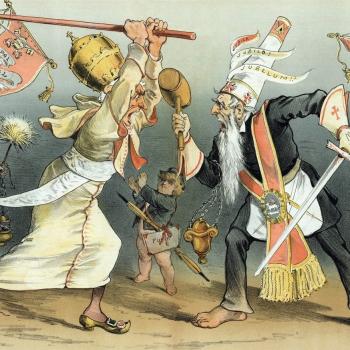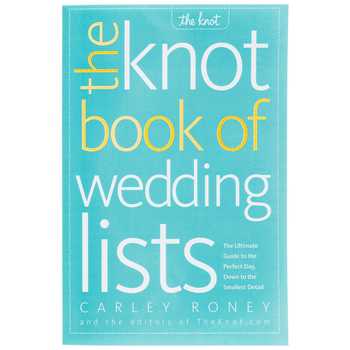This post is part of a debate on gay marriage. I’m responding to Matt’s post on gay marriage and deep friendship, and this is the last part of my three-part rebuttal.

Matt and Esolen’s idea that sexual tension poisons relationships has pretty high stakes for me. As a bi girl, I am technically never not around people to whom I could conceivably be sexually attracted. And as an out bi girl, I’m around people who know that I know that they know that I am not categorically opposed to having sex with them on account of their physical secondary sex characteristics. (I may be categorically opposed for other reasons).
Esolen and Matt’s concerns imply that I’ve got some pretty meaningful barriers to friendship with people of either gender, but that hasn’t been my experience. I’ve lived with guys and girls, and I’ve seen plenty of both in their underwear or towels. (Yes, I have had the hot co-ed experience of seeing a girl in her bra while I pin parts of her dress so I can make alterations for her on my sewing machine. Yowza.)
So how do I do it? Well, one of the reasons my female friends are comfortable around me in a way they wouldn’t be with a straight guy isn’t any particular credit to me. Most of us don’t think of women as sexual aggressors. My female friends and casual female acquaintances never see Schrödinger’s rapist when they look at me, even if we’re alone in a dark alley. Not coming off as a sexual threat is more difficult for guys.
But that problem is muted if you’re already on the path to developing the kind of deep friendships that Matt and Esolen are trying to defend. So they’re really concerned about ambiguous sexual tension. If I exuberantly grab someone’s hand and do a few swing dance turns, my friend may not be able to share as wholeheartedly in my excitement because a part of zer is concerned I may be hitting on zer, and ze doesn’t want to send be the wrong signals. It’s not an idle concern; I’ve found myself in that situation, and I’m sure many of the readers have, too. Here are the two main ways I deal with it:

The ‘friendzone’ works
The longer you spend around someone without making sexual advances or things that look like sexual advances, the less likely it is that whatever you’re doing now will be interpreted as a come-on. It’s just good Bayesian updating on priors. That means this scourge of nice-guys-in-romcoms is your ally when it comes to developing deep friendships. It takes time for this effect to kick in, but it takes time to develop a deep friendship, too, so that’s fine.

Improv comedy is a good model for targeted flirting
In improv, the first rule is “Yes, and.” A scene can’t go anywhere unless you and your partner keep building on what the other person has done. So if someone says to you in a scene, “You’re late!” you can’t just say, “Yes” because then the scene stops. You have to say “Yes, and I was stuck behind a circus parade the whole way!” Now the other person has something to respond to.
When you’re flirting with someone, you can match whatever level of physical intimacy you have and then amplify slightly. If both people are using this strategy, it’s a feedback loop if they’re both trying to flirt. If the other person doesn’t “yes, and” your advance or asks you to tone it down, return to the previous level of engagement.

Let’s make everything more scripted!
Fine, I know no one but me likes this one, but if you’re bothered by ambiguity, why not make asking people out a lot more explicit? Take someone dancing, ask them out on dates, pass them a note in study hall, filter your message through three mutual friends, so no one has to deal with the awkwardness of a face to face rejection. If you’re known for being direct, people know that other physical intimacies don’t denote sexual attraction.
All of these solutions take effort, but they’re hardly a crippling burden. Matt is right that out gay people change some dynamics of friendships, but only modest adjustments are required to preserve the best parts of the old ways.
This post is part of a debate on gay marriage. I’m responding to Matt’s post on gay marriage and deep friendship, and this is the last part of my three-part rebuttal.















